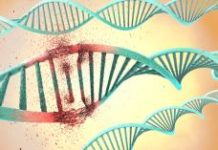
Cancer in My Community is a Cancer.Net Blog series that shows the global impact of cancer and how professional providers work to care for people with cancer in their region. Abdul Rahman Jazieh, MD, MPH, is a professor and chairman of the Department of Oncology at King Abdulaziz Medical City in Riyadh, Saudi Arabia. He is an American-trained medical oncologist and was formerly a professor and the chief of the Hematology & Oncology Division at the University of Cincinnati in Cincinnati, Ohio. You can follow him on Twitter.
Why I care for people with cancer
Receiving a cancer diagnosis is a life-altering experience, not just for the patients themselves, but also for their families and friends. A cancer diagnosis is usually associated with many challenges in every aspect of a patient’s well-being, including physical, emotional, social, and financial concerns. Caring for people with cancer is extremely rewarding because of their dire need for help and support, which encourages providers to do their best to help them. Patients and their families are often very appreciative of the help they get from health care providers.
Although we had limited diagnostic and treatment options to offer patients in the past, advances in cancer management have given us a better ability to help our patients so we can cure more people with cancer. In the cases when a cure is not possible, we turn our focus to adding quality to the patient’s life. So when we cannot add days to the patient’s life, we add life to their days. When we are able to get rid of the cancer, we celebrate success. And when we are not able to rid of the cancer, we try to focus on our role in relieving the suffering of our patients.
What cancer is like in Saudi Arabia
Cancer is much less common in Saudi Arabia than in Western countries, with a different frequency and some differences in types of cancer. This may be due to differences in lifestyle and diet and less exposure to risk factors for cancer, such as smoking, which is less prevalent in Saudi Arabia than in other countries. Breast cancer is the most common type of cancer in Saudi Arabia, followed by colorectal cancer, thyroid cancer, and lymphoma. However, lung cancer and prostate cancer—which are leading types of cancer in the United States—are not as common in Saudi Arabia.
How people with cancer receive care in Saudi Arabia
Saudi Arabia has very sophisticated cancer treatment centers located in major cities that offer state-of-the-art cancer treatment and are staffed by highly qualified doctors and other clinical and support staff. Complex cancer surgeries can be performed in many of these cancer centers, and access to the latest radiation therapy techniques is available. All types of systemic cancer treatments, including chemotherapy, targeted therapy, immunotherapy, and others, are available to our patients.
Cancer care is offered free of charge for Saudi patients by a royal decree, and patients get all medications, procedures, and tests for free in the government hospitals. The vast majority of cancer patients in Saudi Arabia are treated at hospitals from various sectors of the government, including the Ministry of Health, the military, the national guard, and others. Only a small fraction of patients seek care at private practice centers.
Where patients can find local resources and support
Family is an important social structure in Saudi Arabia. Families are usually tightly knit and extended to include many relatives who act as a great support system for people with cancer. It is very important for family to be able to provide support to patients during their cancer experience.
Charity is an important component of Saudi society. This is why there are many non-governmental organizations to support patients with their various needs, including psychosocial, financial, and educational needs. Some examples of these organizations include the Saudi Cancer Society, which is dedicated to help all patients with cancer; the Zahra Foundation, which helps women with breast cancer; and the Sanad Foundation, which helps children with cancer.
Because the Arabic language is the mother tongue of Saudis, it is critical to have educational resources in Arabic. The King Abdullah Arabic Health Encyclopedia is one of the largest websites for Arabic content on various health issues, including cancer. Finally, the Kingdom of Saudi Arabia has a well-maintained, population-based national tumor registry that has been in existence for over 20 years. It provides access to information about cancer statistics in the country.







